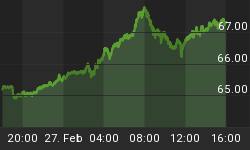The Federal Reserve is "normalizing" its monetary policies. QE3, the latest installment of its multi-year $3.7 billion asset purchase program is ending this month. And although its zero interest rate policy (ZIRP) is still fully in force, the Federal Reserve is signaling that as long as the economy continues to improve, interest rates are going up. Though these easy money policies are acknowledged by most investors as the driving force behind the strengthening U.S. economy and, as a derivative, the five-plus year bull run in the equity market, equity investors seem to be taking the Federal Reserve's normalization plans in stride. So too the Federal Reserve. As we posited here, the reason is because equity investors and FOMC members alike believe the Federal Reserve's easy money policies have worked; that they have finally put the economy on a sustainable, longer-run growth path. In fact, the economy is doing so well that it's time to normalize monetary policy.
As we wrote here, here and here, in the end this story will prove to be pure fantasy. The lion's share of the supposed economic strength we see today is both artificial and unsustainable because it is built on malinvestments born out of the monetary largesse underwritten by the Federal Reserve's policies. Normalize those policies; i.e., end QE and raise interest rates, and sooner or later those malinvestments will be liquidated. The supposed economic boom will turn to economic bust, and with that, a bust in the publicly traded equities that lay claim to those malinvestments. As Austrian Business Cycle Theory (ABCT) theorists teach, such is the course of every boom-bust cycle. Easy money - whether that originates directly from the central bank or from the central bank supported, fractional reserve banking system - gooses the money supply creating an artificial, unsustainable boom. The boom will bust when that easy money abates.
Continue reading the rest of the article here.















